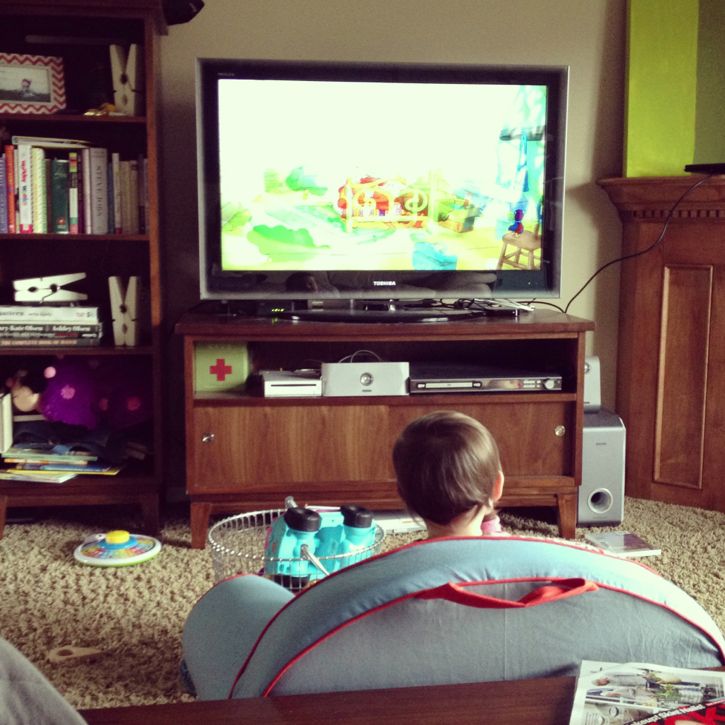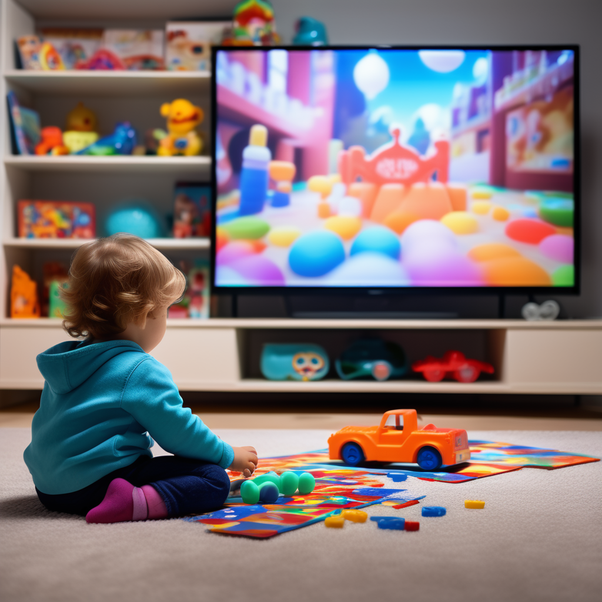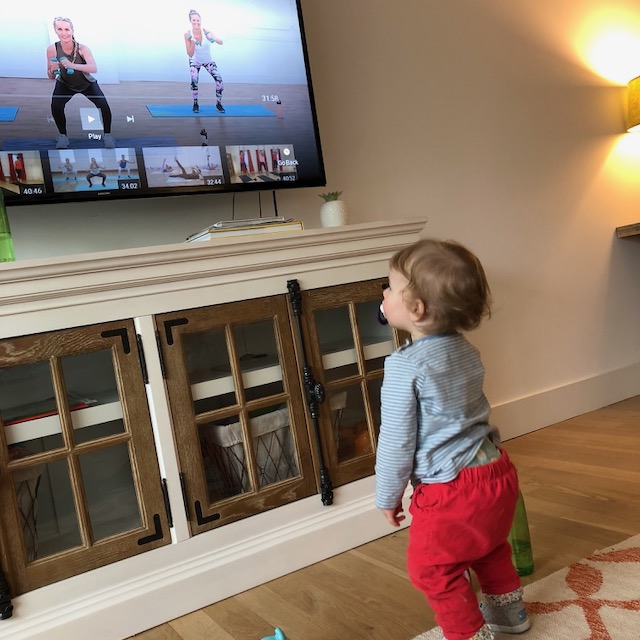I. Introduction to Toddler Screen Time

A. Understanding the Impact of Screen Time on Toddlers
How much tv should a toddler watch? As technology continues to advance, the topic of screen time for toddlers has become a subject of concern for many parents. With the increasing availability of smartphones, tablets, and televisions, young children are exposed to screens at an early age. It is essential for parents to understand the potential impact of screen time on toddlers’ development, behavior, and overall well-being.
II. Guidelines for Toddler Screen Time
A. The American Academy of Pediatrics Recommendations
The American Academy of Pediatrics (AAP) provides valuable guidelines for parents regarding the appropriate use of screen time for toddlers. According to the AAP, children under 18 months of age should avoid all digital media, except for video chatting. For toddlers aged 18 to 24 months, limited and high-quality media that is co-viewed with a caregiver is recommended.
The AAP further suggests that for children aged 2 to 5 years, screen time should be limited to one hour per day of high-quality programming. It is important for parents to prioritize active, interactive, and creative activities over passive screen time, as these activities are crucial for a child’s development.
B. Balancing Screen Time with Other Activities
While screen time can offer educational content and entertainment, it is essential for parents to balance it with a variety of other activities that promote physical, social, and cognitive development. Encouraging activities such as outdoor play, reading, imaginative play, and creative arts can provide a well-rounded and enriching experience for toddlers.
Finding the right balance between screen time and other activities is crucial for a toddler’s overall development. Excessive screen time may lead to potential negative effects on a child’s physical health, social skills, and cognitive abilities. By understanding the guidelines for toddler screen time, parents can make informed decisions to support their child’s healthy development.
As parents navigate the complexities of screen time for their toddlers, it is important to consider the potential impact it may have on their children’s well-being. Following the guidelines provided by reputable sources such as the American Academy of Pediatrics can serve as a valuable framework for managing and regulating screen time for toddlers. By promoting a balanced approach, parents can ensure that their children’s screen time is constructive, limited, and complemented by a diverse range of stimulating activities that support their overall growth and development in a positive manner.
III. Choosing Quality Content for Toddlers

A. Educational and Age-Appropriate Programs
When it comes to choosing content for toddlers, parents should prioritize educational and age-appropriate programs. Educational content can offer valuable learning opportunities, helping toddlers develop language skills, cognitive abilities, and social understanding. Age-appropriate programs are tailored to match a child’s developmental stage, ensuring that the content is engaging, comprehensible, and suitable for their level of understanding.
Parents can consider programs that focus on fundamental concepts such as numbers, letters, shapes, colors, and basic problem-solving skills. Additionally, interactive and engaging content with music, storytelling, and simple narratives can stimulate a toddler’s imagination and creativity. Overall, selecting quality educational programs is essential for ensuring that screen time positively contributes to a toddler’s growth and learning experience.
B. Limiting Exposure to Advertising and Inappropriate Content
When exposing toddlers to screen time, it is crucial for parents to limit their exposure to advertising and inappropriate content. Children at this age are highly impressionable, and exposure to advertisements can influence their preferences and behaviors. Therefore, selecting ad-free platforms or using parental controls to minimize exposure to advertisements can help create a safe and controlled viewing environment for toddlers.
Furthermore, parents should be mindful of the content their toddlers are exposed to and ensure that it aligns with their values and is developmentally appropriate. Avoiding content with violence, inappropriate language, and mature themes is important to safeguard a toddler’s emotional and psychological well-being. By actively monitoring and curating the content their children engage with, parents can create a positive and enriching screen time experience for their toddlers.
IV. Managing Screen Time at Home
A. Establishing Clear Limits and Boundaries
In managing screen time at home, establishing clear limits and boundaries is essential for promoting responsible and balanced use of digital media. Parents can set specific time limits for screen time and communicate these boundaries clearly to their toddlers. Consistency is key, and by adhering to predetermined screen time rules, parents can cultivate healthy habits and reduce the likelihood of excessive and uncontrolled screen time usage.
Additionally, creating designated screen-free zones within the home, such as the dining area or playroom, can help toddlers associate certain spaces with non-screen activities. This approach encourages a more balanced and diversified daily routine, promoting engagement in various activities beyond screen time.
B. Encouraging Alternative Activities and Play
Encouraging alternative activities and play is crucial for providing toddlers with enriching experiences that extend beyond screen time. By introducing a variety of activities such as outdoor play, arts and crafts, storytelling, and imaginative play, parents can foster holistic development and creativity in their toddlers. These activities not only support physical and cognitive development but also promote social interaction and emotional expression.
Moreover, parents can actively participate in these activities with their toddlers, creating opportunities for bonding and building strong parent-child relationships. By emphasizing the value of diverse activities, parents can broaden their toddlers’ interests and abilities while reducing their dependency on screen time as the primary source of entertainment and engagement.
V. Monitoring the Effects of Screen Time on Toddlers
A. Observing Behavioral and Developmental Changes
As parents navigate the complexities of screen time for toddlers, it is crucial to closely observe behavioral and developmental changes that may result from their screen time exposure. Young children’s behaviors and cognitive development can be significantly influenced by the amount and type of screen time they engage in. Therefore, it is important for parents to be attentive to any shifts in their toddler’s behavior, emotions, and interactions with others.
Parents should pay particular attention to signs of increased irritability, disrupted sleep patterns, reduced social interactions, and changes in attention span or emotional regulation. These indicators could suggest that the toddler’s screen time exposure may be impacting their overall well-being. It is important to note that every child is unique, and their response to screen time may vary. By actively observing these changes, parents can gain insights into how screen time is affecting their toddler and make informed decisions regarding its management.
B. Adjusting Screen Time Based on Individual Needs
Given the diverse responses toddlers may have to screen time, it is essential for parents to adjust screen time based on each child’s individual needs. Some toddlers may be more sensitive to screen time and its effects, while others may show resilience to its influence. By recognizing these differences, parents can tailor screen time usage to align with their child’s capabilities, preferences, and developmental stage.
If parents observe concerning changes in their toddler’s behavior or development, they should consider modifying the amount or type of screen time exposure. This may include reducing overall screen time, selecting more interactive and educational content, or reallocating screen time to specific periods during the day. Regular reassessment and responsiveness to a toddler’s individual needs ensure that screen time remains a positive and beneficial aspect of their development.
In conclusion, the selection and management of screen time for toddlers play a significant role in shaping their early development and well-being. By prioritizing educational and age-appropriate programs, limiting exposure to advertising and inappropriate content, and implementing clear limits and boundaries, parents can create a healthy and balanced screen time environment for their toddlers. Additionally, encouraging alternative activities and play can enrich a child’s daily experiences, promoting comprehensive growth and learning. Through thoughtful consideration and active involvement, parents can establish a positive and constructive approach to managing screen time for their toddlers.



